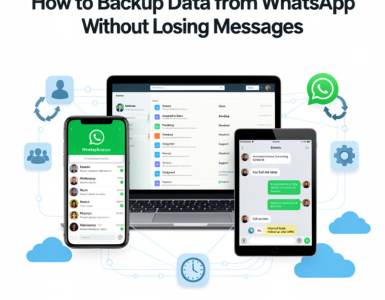Over the last few years, digital payments have transformed from a convenience to an expectation. As more consumers shift toward conversational commerce, the curiosity around whether users can confidently send money through WhatsApp has sharply increased. With over 2.7 billion active users, WhatsApp has evolved into much more than a messaging platform through features like WhatsApp Pay, and the broader WhatsApp payment feature, it has positioned itself as a real-time payments ecosystem.
Businesses and consumers alike now frequently explore whether WhatsApp can handle secure financial transactions, how it ensures UPI safety, and whether its growing ecosystem, including WhatsApp UPI payment and WhatsApp money transfer use cases, is reliable enough for everyday financial activity.
This article dives deep into security protocols, daily limits, adoption trends, business capabilities, and the future of conversational payments, while also exploring how platforms like Picky Assist empower businesses to automate and scale WhatsApp-based payments securely.
How Secure is WhatsApp for Payments?
To understand if it’s safe to send money through WhatsApp, it’s important to look beyond marketing and analyze the security framework. WhatsApp’s payment system is built entirely on India’s UPI network, which processes over 12+ billion transactions monthly. WhatsApp does not store payment data, card numbers, or UPI PINs, these remain encrypted and fully managed by your bank.
WhatsApp relies on:
- End-to-end encryption for personal and payment communication
- NPCI compliance for UPI
- Bank-grade authentication for money transfers
- Device-level binding to prevent unauthorized access
This combination ensures that even though users might perform a WhatsApp money transfer or a WhatsApp UPI payment, the sensitive information always flows through secure banking rails.
WhatsApp also leverages multi-layer verification, biometric authentication, SMS OTPs, and UPI PIN entry, making fraudulent access statistically minimal. According to industry estimates, less than 0.005% of UPI transactions face disputes due to unauthorized access, among the lowest globally for digital payments.
Is it Really Safe to Send Money?
WhatsApp’s role is primarily that of a UI layer. The real transaction is between your UPI ID and your bank. So when users send money through WhatsApp, the platform simply facilitates UPI but does not process or hold funds at any stage.
Additionally, WhatsApp integrates UPI standards through WhatsApp UPI integration, allowing banks to validate every transaction step. This eliminates vulnerabilities that existed in older digital wallets.
The biggest advantage is familiarity. Many users already trust WhatsApp for messaging and media, and the introduction of how to send money on WhatsApp tutorials within the app has helped reduce learning friction.
From a security analyst’s viewpoint, WhatsApp is as safe as any UPI payment app, provided users follow basic safety practices.
How WhatsApp Payments Work Behind the Scenes?
WhatsApp uses the Unified Payments Interface, supporting:
- Instant transfers
- Cross-bank reliability
- Zero transaction fees
- 24/7 availability
When a user attempts a WhatsApp UPI transaction, the platform securely bridges information between your bank and the recipient’s bank.
Businesses exploring WhatsApp payment integration for business can attach their UPI IDs, payment links, or integrated gateways to automate collections. Many ecommerce brands now use WhatsApp pay for ecommerce and WhatsApp checkout integration to reduce cart abandonment by up to 35%, as payments happen without redirecting users to external websites.
What Are the Benefits of Sending Money Through WhatsApp?
1. Familiar Interface
Most users already use WhatsApp daily, so asking them to send money through WhatsApp feels natural.
2. Bank-Level Security
Because every WhatsApp Pay transfer is verified through UPI, the integrity of the transaction remains high.
3. Reduced Friction for Businesses
Brands can embed links making it easier for customers to pay directly within the conversation:
- WhatsApp payment link
- WhatsApp payment gateway
- WhatsApp direct payment
4. High Conversion Rates
Consumers are 2x more likely to complete payments inside a chat vs. switching apps.
Daily Limits for WhatsApp Payments
Just like any UPI app, WhatsApp’s transaction limits depend on your bank. Generally:
- Per transaction limit: ₹1,00,000
- Daily transaction count: Usually around 20
- Business accounts often require specialized UPI integration
These limits make it convenient for everyday purchases, bill payments, or business collections.
Business Use Cases: Why WhatsApp Payments Are Growing?
The rise of conversational commerce has made WhatsApp payment automation and WhatsApp pay for business extremely valuable. Businesses can:
- Send invoices
- Trigger payment links
- Automate reminders
- Collect subscription payments
- Enable fast WhatsApp direct payment options
- Facilitate accept payments on WhatsApp without building a full website
Platforms like Picky Assist have transformed this landscape by offering fully automated workflows, especially for businesses seeking WhatsApp payment integration or WhatsApp checkout integration.
How Picky Assist Helps Businesses Automate WhatsApp Payments?
Picky Assist offers a powerful automation ecosystem enabling businesses to:
- Create automated journeys for WhatsApp payments
- Integrate WhatsApp payment gateway solutions
- Support WhatsApp UPI integration
- Trigger WhatsApp automated payment collection
- Reduce abandoned carts using WhatsApp pay for ecommerce
- Deploy bots that guide customers on how to send money on WhatsApp
Businesses no longer require a complicated tech stack. With Picky Assist, they can activate workflows that send payment links, confirm payments, and update CRM systems, all inside WhatsApp.
This is especially valuable for small and medium-sized businesses wanting to accept payments on WhatsApp without expensive development.
Is WhatsApp Safe for Sending Money?
WhatsApp’s payment architecture is reliable, secure, and extremely efficient. The ability to send money through WhatsApp has simplified digital payments dramatically, especially for users who prefer chat-based transactions.
For businesses, the combination of WhatsApp payment integration, automation tools like Picky Assist unlocks a frictionless, high-conversion payment experience that aligns perfectly with today’s messaging-first economy.
As long as users maintain basic digital safety habits, WhatsApp remains a trusted, low-risk way to manage payments, collections, and ecommerce transactions.
FAQ on Sending Money through WhatsApp
1. Is it really safe to send money through WhatsApp?
Yes. WhatsApp uses UPI’s secure bank infrastructure, end-to-end encryption, and multi-factor authentication ensuring safe transfers. Features like WhatsApp payments and the WhatsApp payment feature follow NPCI-certified protocols.
2. How do I set up WhatsApp payments?
Users simply verify their phone number, select a bank, authenticate via UPI PIN, and then they can start a WhatsApp UPI transaction or initiate WhatsApp money transfer instantly.
3. Can businesses accept the money send through WhatsApp?
Absolutely. Using tools like Picky Assist, businesses can activate WhatsApp payment setup for business, enable WhatsApp payment link triggers, deploy WhatsApp payment automation, and integrate with a WhatsApp payment gateway.
4. Are WhatsApp Pay transactions chargeable?
No. UPI transactions are free, whether you use a standalone UPI app or send money through WhatsApp.







Add comment